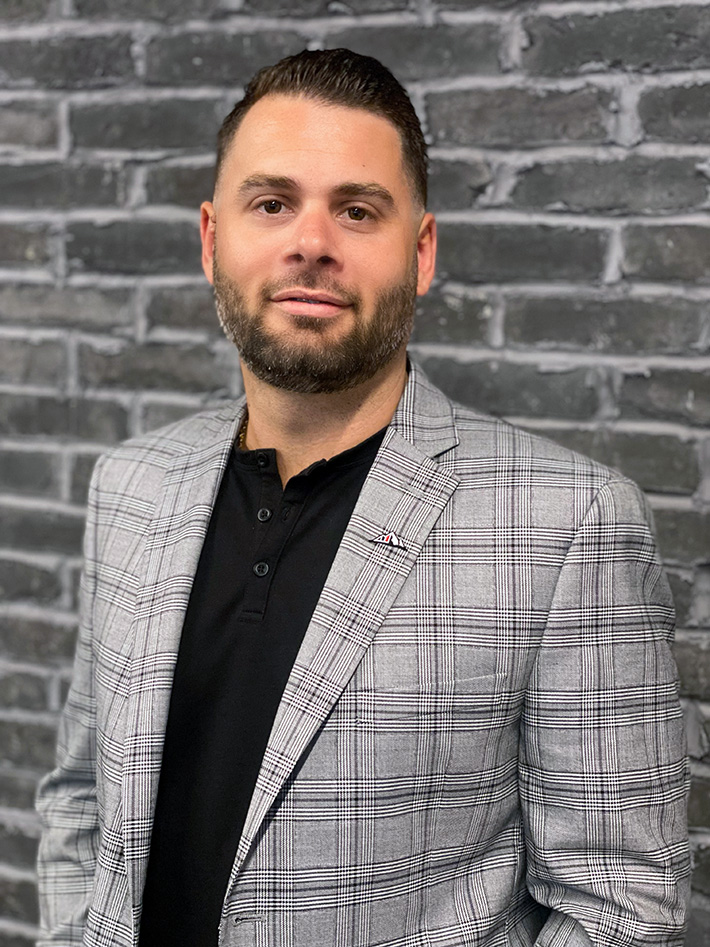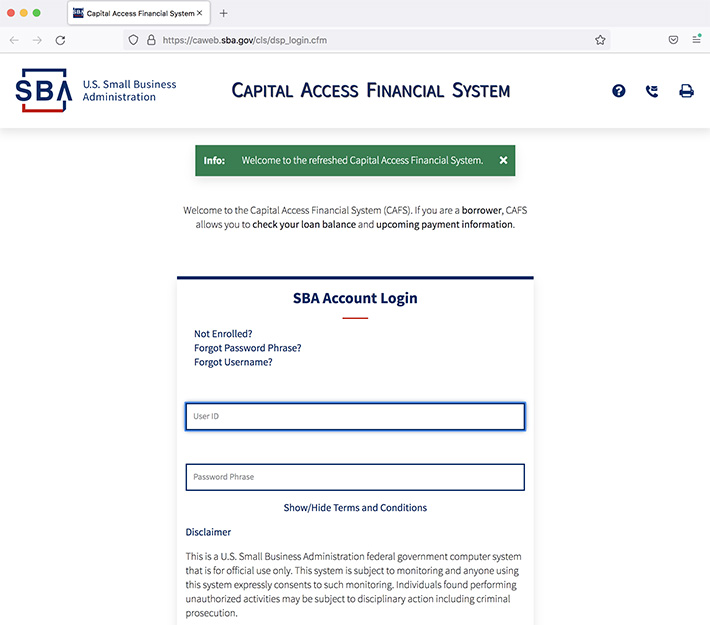Climbing Up The ROK
December 23, 2022
This month Patrick Manning took over as the new CEO of ROK Financial. Previously representing the company as CRO and President, Manning’s been on an upward trajectory since he first started in sales roughly eight years ago. He learned the business from founder and former ROK CEO James Webster, who will be stepping into a new role as Executive Chairman.
Manning will be overseeing the leadership team with the help of COO Shannon Treadwell and continuing to grow the organization.
“I also have a large hand in the relationships with our lenders, we are a broker, and we utilize all of the top lenders in the industry,” said Manning. “And I sit at the helm of managing and building those relationships with our lenders.”
Manning described the industry as “lacking information and education” whether this be from brokerages or business owners themselves. Taking pride in the way ROK does business, Manning went on to describe a new learning experience the company will be presenting to the industry.
“I’m going to continue to help push on the company initiative of rolling out ROK-U or ROK University. ROK-U is an education platform which encompasses ROK’s 10-15 years of broker experience to an easy-to-follow training platform geared to properly educate those that are looking to enter into the industry,” said Manning.
ROK’s goal is to improve the way brokers interact with business owners and carry out transactions. This fully remote program will be available to anybody interested in entering the industry where they’ll learn proper techniques as well as language. The company soft launched the program in May with 30 enrolled students from all over the country. Testing the program out to see what areas needed improvement, ROK-U will officially launch in January 2023. It is also free of charge and will be live on their website.
“The team has been working diligently to roll out new technologies to help with this initiative. Those that enroll in ROK-U will have access to best-in-class technologies powered by Salesforce Communities to assist in training and getting their businesses off the ground,” said Manning.
The company will also be introducing the ROK Tour, a new networking event in eight major cities throughout the U.S to help promote ROK University.
The Buck in Trucking
December 21, 2022 “If you don’t have the marketplace of lenders, yes, it can be problematic,” said Cheryl Tibbs, Owner/CEO at Equipment Lease Co about providing capital to the trucking industry. “If you don’t understand the trucking industry, it can be very problematic.”
“If you don’t have the marketplace of lenders, yes, it can be problematic,” said Cheryl Tibbs, Owner/CEO at Equipment Lease Co about providing capital to the trucking industry. “If you don’t understand the trucking industry, it can be very problematic.”
In the last year, there has been an increasing interest in equipment financing. It was the primary topic of a panel discussion at Broker Fair and the subject of several sidebar conversations throughout the day and thereafter. For Tibbs, who lives and breathes equipment finance and trucking, she said she doesn’t see funding in that space slowing down.
“Every business that’s in business needs some type of equipment to operate,” said Tibbs. “Whether it’s a cell phone, a POS system, a car or truck, excavator, whatever it is, every business has some type of equipment. So I don’t see the industry slowing down at all.”
Tibbs, for her part, says that some companies in her lender network can provide a uniquely beneficial solution, a funding bundle that is part equipment finance and part working capital.
“Some of those customers may need that working capital for a down payment or if you’re buying a truck, for instance,” Tibbs said. “And this working capital comes in handy because if you know anything about trucking, the insurance on those things can be– I’ve seen it go as high as 60,000 a year, almost half the cost of a truck. So that working capital comes in handy.”
And the costs of trucks is in a state of flux. Jonathan Nelson, General Counsel at Dedicated Financial GBC, said the costs of used trucks is rapidly shifting.
“This month, you could get $20,000 for this particular used truck on the East Coast and next month, if you were to sell it on the West Coast, you might get $40,000,” said Nelson. “It’s very volatile at the moment.”
Evan Sowa, Senior Finance Manager at Everlasting Capital, echoed same.
“Depending on the geographical market, prices on the same truck can vary substantially,” he said. “Market prices are as high as I have ever seen them, up to 80% higher than similar units 4 years ago.”
Sowa continued by explaining that demand and prices in the used truck market have been booming but that they’re finally starting to cool off.
David Lee, CEO at North Mill Equipment Finance, said there are some issues in the wider trucking market right now.
“The trucking industry is facing a lot of challenges currently,” Lee said. “In addition to supply disruptions, and an inflation in used asset values and unavailability of newly manufactured equipment combined with significant increases in diesel fuel costs, a number of operators have felt tremendous margin pressure, with load rates having decreased, the cost of the equipment being higher, and the cost of operating the equipment via fuel being higher.”
 A lot of those costs have not been able to be passed on to shippers, Lee added, and he said that they’re seeing a material increase in delinquencies and defaults amongst trucking operators.
A lot of those costs have not been able to be passed on to shippers, Lee added, and he said that they’re seeing a material increase in delinquencies and defaults amongst trucking operators.
Nelson at Dedicated, speaking on a much broader level of equipment finance, said that in general the industry has been able to escape the wave of defaults happening in other industries.
“We are a part of the National Equipment Finance Association and the Equipment Leasing and Finance Association to make sure that we understand issues and different trends that are happening in the equipment finance industry, because that’s where most of our clients are,” he said.
Tibbs, who’s a super broker, explained that she has seen lenders and funders tighten up their guidelines post covid.
“It’s not as easy to get plugged in with certain lenders,” she said. “It’s not as easy to get certain deals approved that we probably could have gotten approved pre-pandemic.”
Because of her experience and relationships, however, Tibbs is optimistic about the kind of deals she can get done, especially over newcomers who are at a disadvantage, explaining that she can finance pretty much anybody.
Evan Sowa at Everlasting summed up the state of things as such.
“Still funding trucks every day but the market is crazy right now,” he said.
Actually Paying the EIDL Not So Easy?
December 15, 2022 “It’s like the DMV, everything’s very complicated,” said Eddie Klein, Managing Partner at YM Ventures. “The whole process was complicated to begin with…”
“It’s like the DMV, everything’s very complicated,” said Eddie Klein, Managing Partner at YM Ventures. “The whole process was complicated to begin with…”
Just recently, the first round of EIDL borrowers were required to start making payments after receiving a 30-month deferment and already challenges are starting to present themselves. The availability of these funds came at a desperate time for merchants that needed the capital and few were probably asking about the servicing or repayment process.
“You really got to look at them from a perspective that they got very cheap money at a time where everyone desperately needed it, so very cheap money and dealing with a little bit of headache or taking expensive money and not dealing with a little bit of headache,” said Klein. “I would definitely always take the cheaper money.”
And so too did millions of American business owners go with the cheaper EIDL funds. But now that it’s time to pay, borrowers are learning that their balances and statements exist on one website, CAFS (caweb.sba.gov), and the system to make payments exists on another, (pay.gov). The first refers you to the latter but it’s not exactly a smooth transition. For one, each website has its own separate username and password system.
“If you’re going to ask these business owners for money back, which is fine, it’s the government’s right to do that, you got to make it simple,” said Trey Markel, VP Sales & Marketing at Centrex Software. “You got to have some videos, you got to have some tutorials, you got to make sure you’re guiding people down the right path and unfortunately, that’s just not happening.”
 It can also be quite difficult to contact the SBA directly when dealing with system problems, according to Markel who provided an example. One of Markel’s clients has been trying to make interest payments on two EIDL loans but the system will only apply payments to one.
It can also be quite difficult to contact the SBA directly when dealing with system problems, according to Markel who provided an example. One of Markel’s clients has been trying to make interest payments on two EIDL loans but the system will only apply payments to one.
“He’s making principal and interest payments, technically to one, because that’s how it’s being calculated,” said Markel. “And the other one, the interest has been accruing the entire time, with no payments associated to it.”
The SBA, for its part, said it provides instructions to merchants to make payments.
“SBA sends a direct email to borrowers to remind them that their deferment period is ending, and they are entering repayment, including instructions to create CAFS account to check loan balance, payment amount and due date,” said Christalyn Solomon, Public Affairs Specialist at the SBA. “If they create a CAFS account, as instructed, they will also receive a monthly statement.”
And for borrowers experiencing short-term financial challenges, the SBA is now offering a Hardship Accommodation Plan allowing those who are eligible to request an extension for another six months.
“The Hardship Accommodation plan has been well received by borrowers experiencing difficulties in repaying their loans,” said Solomon. “SBA wanted to provide relief to existing COVID EIDL borrowers experiencing short-term financial challenges. The six-month payment reduction plan, called the Hardship Accommodation Plan will assist those who are still working to repay this COVID economic aid loan that provided them with much needed emergency working capital during the pandemic.”
Opportunities Still Ahead?
December 12, 2022 With the year coming to an end, it’s time to analyze what direction the industry is going in. Some professionals in the industry are feeling optimistic despite macroeconomic pressures and there’s a reason for that.
With the year coming to an end, it’s time to analyze what direction the industry is going in. Some professionals in the industry are feeling optimistic despite macroeconomic pressures and there’s a reason for that.
Gerald Watson, Founder and President of The Watson Group, said with the latest Employee Retention Tax Credit (ERTC), his company has been on a steady incline. The tax credit was designed for companies affected by Covid in 2020-21 as a refund against payroll taxes they’ve already paid and that’s where Watson comes in because it can take a while for business owners to actually receive those funds, as long as 6-12 months, he said. With the help of funding partners, Watson can make an advance to business owners on the ERTC upfront. Watson’s core business has always been factoring but when he saw this opportunity, he went for it.
“I think maybe looking ahead as we get into 2023 next year, I think the industry is going to be continuing to look for ways to expand its product base, and I think it’s likely that we’ll see more and more maybe of your larger lenders moving into things like some form of factoring, for example,” said Watson.
On the fintech side, CRO at Encapture Tyler Barron says he’s noticed a shift this year regarding certain lines of business but that their product has historically performed well regardless, even if the deal sizes get a bit smaller. Encapture is a platform that sells automated programs to financial service companies – primarily big banks – and they’ve noticed large, regional, and community banks investing more in technology, specifically ones that help them automate and cut costs.
“What we’ve kind of seen over the past year is, there’s definitely been a pullback, as it relates to certain lines of business, like anything related to mortgage this past year has completely dried up,” said Barron. “But we are still seeing financial institutions, both fintechs, large banks, regional banks, and community banks invest in technology.”
Back at Broker Fair in late October, Pooja Nene, Broker Relationships Manager at Balboa Capital, told deBanked that she thought the industry was going in a good direction.
“I think with a lot of issues that we’ve had since 2020 our industry’s been holding up really well and there’s a ton of opportunities out there to get involved in different types of financing…” said Nene.
Overall, the demand for the products should continue.
“One thing about our industry is that people always need money; good times bad times, high interest rates, low interest rates,” said Gerald Watson. “There’s always going to be a demand for what we do.”
Fintech Layoffs Pile Up
December 9, 2022 2022 has been a rough year for many fintech employees. The year started out with just a few layoffs but had an exponential increase totaling in at 219,959 layoffs from 1,405 tech companies.
2022 has been a rough year for many fintech employees. The year started out with just a few layoffs but had an exponential increase totaling in at 219,959 layoffs from 1,405 tech companies.
Financial services company Plaid, for example, recently announced plans to lay off 20% of employees, which is about 260 staff members.
“Today, I’m announcing the most difficult change we have had to make at Plaid to date,” wrote Plaid CEO Zachary Perret in a Dec. 7th website post. “I made the hard decision to reduce the size of our team, and in doing so, to say goodbye to approximately 260 talented Plaids.”
Perret alluded to over-hiring as a result of the surge in business during covid. They are not alone. Companies including Klarna, Coinbase, Kabbage, and Amazon have laid off substantial amounts of staff. January started off low with 631 employee layoffs and that later increased to over 6,000 in February. November tallied 59,785 layoffs, weighing in with the highest number of employees laid off compared to any other month this year.
Just Jump In: Three Women Making Their Mark in The Industry
November 29, 2022Forty-Six percent of women make up the workforce in the financial services industry with only 6% of them being CEOs. Reshaping the narrative of men dominating the finance world, women in various components of the industry are making their mark. Sarah Kelly, Lindsey Rohan, and Heather Francis are three women that particularly stand out in the commercial finance industry.
Equipped at Birth
Born into equipment finance, Sarah Kelly got her start by working for the family business at KLC Financial. After a decade of becoming an expert in the trade, she spent some time in the medical equipment finance side of the industry before finally landing at Dedicated Financial GBC, where she is now the Director of Servicing. Dedicated has been experiencing growth, according to Kelly, as the company just hired five new employees in the last couple of weeks.
“I have a lot of confidence in the leadership team and was excited that they were open to having a woman on the team,” said Kelly. “They’ve welcomed me in wholeheartedly, they always ask for my opinion, I’m always willing to give it and I feel like we’ve really all connected to make Dedicated a great company.”
Kelly believes that women should support one another to do better. Even a little friendly competition to push each other to be their best selves doesn’t hurt.
“I believe that we can really show other women that you can be whatever you want to be in this industry, that there’s no limit, there really aren’t,” said Kelly. “I feel like some people think that there might be just because they are a woman but there really is no limit and we just need to get that word out there to them…”
Practicing the Laws of Finance
Finance wasn’t exactly the plan for Lindsey Rohan after law school. Working for a law firm in Long Island she dabbled in real estate closings, but with having two small children at the time, balancing work and motherhood were always at odds. Determined to have her own practice, she started Pollack Cooper & Fisher, P.C. where she worked as a real estate attorney for 8 years. She hadn’t ever foreseen commercial finance as her next career path, but a call from a family friend led her to join a merchant cash advance company.
“It actually became quite a good fit because it’s a lot of multitasking, a lot of looking at all the various aspects of a corporation and its life, and how you can protect it,” said Rohan, Deputy General Counsel at Basepoint Capital.
Handling the legal infrastructure of the company, building out departments to make sure there are checks and balances, and making sure all the collections teams abide by the regulations are routine in Rohan’s schedule. Having much success in her position, a notable point in her career has been about building the Alternative Finance Bar Association. The AFBA was created to facilitate the exchange of information with attorney members concerning alternative finance.
“What’s interesting about this is that while the industry itself is male dominated, most of the dominant attorneys in the space are women,” said Rohan. “Some of the largest originators, the General Counsel are women. The leading compliance and regulatory firm, the two attorneys that lead the group that handle commercial business are both women. And that’s an interesting dynamic.”
Working in a predominately male-led industry can have its challenges but Rohan claimed she never found it to be anything that’s held her back. Acknowledging at conferences that only about 10% of attendees are women while the rest are men, she does not believe it has had a negative impact on growth. Rohan agrees it’s important to support women in every endeavor and to not shy away from positions in this industry.
“Just do it, just jump in,” said Rohan. “Don’t hesitate, you’re in control. The amount that you learn is the amount that you allow yourself to be exposed to.”
Funding with Francis
Graduating with a degree in Health Promotion and Education, Heather Francis took a left turn into finance. Working for a private equity firm, she managed portfolios as well as oversaw many others. That position became her crash course into the industry, fueling her relationship into the financial services world and eventually encouraging her to start her own company in 2015, Elevate Funding. As CEO and Founder, Francis has had to do it all.
“I think owning my own business is accomplishment in itself, as well as being a mom and a wife,” said Francis.
Without dwelling on the industry being predominately male, Francis believes it has opened many doors for her. The women in the field are a “close knit group” propping each other up and sharing information, she explained. She believes it is important to support everyone that demonstrates drive and attitude to better themselves. That can be providing pathways, being a soundboard, introducing people, and simply giving out words of confirmation.
“I’ve always seen that the boys have a club, so do the girls, it’s never been anything that’s been a worry to me, or I’ve been like, ‘I’m being held back because of being a woman in finance,’” said Francis.
As a Board member of the SBFA, Francis helps solve problems in the industry and contributes ideas. And with rapid change surrounding the business, she has a hopeful disposition on where it’s heading as we enter a new economic phase. Experiencing the recession back in 09’, Francis saw the industry grow exponentially between 2009 and 2011.
“Traditional finance pulls back when times are hard, and we’re able to be a little bit more nimble and move around to adjust for it, but still keep funding,” said Francis.
Bonded through finance, women are navigating throughout the industry with strong personalities, outspoken voices, and confidence. Born into the field or pivoting their way in, they seem to be embedded into every aspect. While being a team player to everyone, these women continue to push their career forward with hard work, sticking to core values, and knowing who they are.
Don’t Count Out the Bank When it Comes to Small Business Lending
November 21, 2022 “So ideally, the best-case scenario for a business owner is always to try and get approved by a bank, it gives them more flexibility, you’re able to build that relationship with the bank,” said Juan Caban, Managing Partner at Financial Lynx.
“So ideally, the best-case scenario for a business owner is always to try and get approved by a bank, it gives them more flexibility, you’re able to build that relationship with the bank,” said Juan Caban, Managing Partner at Financial Lynx.
It’s an old adage that the bank is the best option, but given their historically tough criteria and reputation for sluggishness, the feasibility has long been a question. Caban, however, said that obtaining a bank line of credit is not as daunting as it sounds. Qualifying businesses (TIB 2+ years, 700+ FICO, and favorable industry) can obtain a pre-approval in 24 hours, approval in 7-10 days, and funding in another 2-3 weeks, making the entire process last about 3-4 weeks overall, according to Caban. And brokers can earn a one-time fee of up to 5% as well, he added.
“Bankers tend to be a little old fashioned oftentimes, now some of that’s changing in how they evolve,” said Patrick Reily, co-founder at Uplinq. “We’re dealing with some really interesting progressive banks in the last five years that are thinking about ‘how do we do better and how do we change things,’ but the reality is that they tend to move more slowly.”
Reily’s company, Uplinq, empowers lenders like banks, credit unions, or other financial institutions to approve and manage risks on loans they would have otherwise declined.
“Some of the companies we work for, they’re able to increase the number of people they lend to by 5 to 15 fold,” Reily said. “Think about that. That’s a huge difference.”
Technology, it appears, is widening the approval window, which means business owners shouldn’t count out options they previously thought impossible.
Caban of Financial Lynx, echoed same, explaining that business owners should explore all potential avenues.
“We pride ourselves in knowing the trends and products in banking and can be a great asset for Brokers/ISOs,” Caban said.
“I think it’s smart always to look broadly and understand what your options are, who is best capable to serve you,” said Reily.
Putting in the “Work” in Network
November 18, 2022 Working in alternative finance goes beyond sitting at a desk, making phone calls, and closing deals. Social media, networking, and staying up to date on industry current events are just as necessary, if not crucial as a financial professional.
Working in alternative finance goes beyond sitting at a desk, making phone calls, and closing deals. Social media, networking, and staying up to date on industry current events are just as necessary, if not crucial as a financial professional.
Social Media
While some may doubt social media’s importance when it comes to finance, it holds more value than one may give it credit for. LinkedIn was recently ranked as the #1 platform for financial services followed by Twitter, TikTok, YouTube, Instagram & Facebook. A business social media presence allows potential clients to see the success and growth of a company, remain updated on exciting news, and be constantly reminded of their existence.
“Us keeping our content up and our exposure up is vitally important in social media,” said David Kirk, National Sales Manager at ACH Works. “And not just LinkedIn, but also the blogs and the forums on the different channels.”
“I think the importance of being able to market on social media and being able to show other companies about yourself is huge,” said Josh Feinberg, President at Everlasting Capital. “And the reason why I think it’s huge is because it shows that you’re a real company with real goals, real values, and it shows the outside world you’re a real company.”
Feinberg added that businesses should use social media to support other people and businesses as well and not just talk about themselves all the time.
“I definitely think as an industry as a whole you have to work together and be able to shout out other companies and being able to show support because being able to get to the next level isn’t just a single-handed thing,” said Feinberg. “It definitely takes a team and sometimes that includes other people outside of your own company and really helping other companies grow alongside with you.”
Industry Events
Networking with other colleagues is an essential part of being an active member in the finance community. Forming genuine connections with people around the country can result in partnerships, a broader clientele, or just another ally in the field.
“As far as networking goes, I think it’s the most important thing you can do. You need to know what’s going on in the industry, around the industry, not only for yourself but also for your clients to be able to deliver a better product to the end user,” said Tony Cimino, Director of Partnerships at ROK Financial, during a brief interview at this past Broker Fair. “And that’s what we’re all here for anyways is to actually get deals done.”
“We do a lot of emails and phone calls but when it comes to that face-to-face interaction, it’s a totally different story,” said Brooke Brown, ISO Manager at Lendini, during Broker Fair. “It changes the game, and it just adds a completely different feel to the relationship, so I really look forward to these types of events.”
And one can’t forget the news itself to stay updated either.
“I go to AltFinance,” said Kirk of ACH Works. “I go to the Third Party Payment Processors Association, I get their newsletter, I regularly go to Daily Funder.”






























